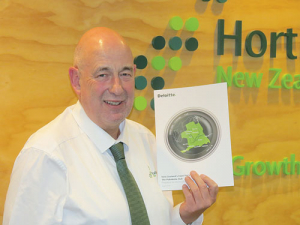Aucklanders face a $1.1 billion economic hit unless they curb their voracious appetite for building houses on top-quality, horticultural land.
That’s the worst-case scenario in a report by Deloitte for Horticulture New Zealand, made public at Parliament last week. It paints a gloomy picture for residents of the city of sails (sales?) as urban sprawl gobbles up the land that feeds them.
The report investigates the plight of the ‘Pukekohe hub’ -- 4359ha on the far southwestern fringe of Auckland where vegetables are grown for the city, other regions and for export.
The region is seriously threatened by urban sprawl.
The report notes that while the Pukekohe hub makes up only 3.8% of the value of all NZ land in horticultural production, it accounts for 26% of the total dollar value of vegetables grown in NZ.
The report shows commercial growers’ have limited ability to respond to production constraints. It says any more land restrictions in the next 25 years would cause serious economic loss and 4500 jobs would be squandered. Fruit and vegetable growing would drop by up to 55% and vegetable prices would rise by an estimated 58%, so that a lettuce could cost a consumer up to $5.55.
Conversely, the report says, if rigid land-use rules were eased elsewhere in Auckland region to prevent the Pukekohe land being lost to housing, the region would be able to supply Auckland’s estimated population of 2.2 million by 2043.
It recommends devising ways to better balance urban and rural environments, including technology to manage intensification of cropping and environmental limits.



















